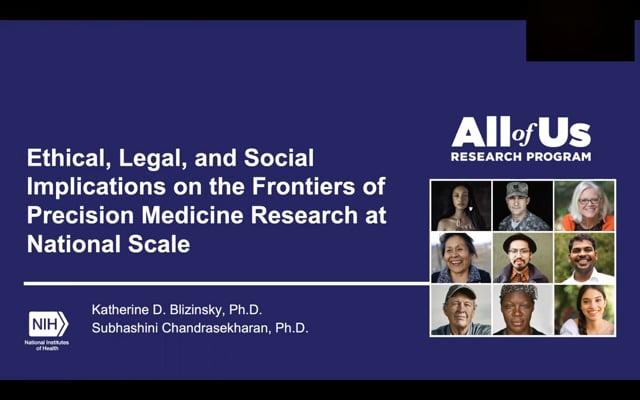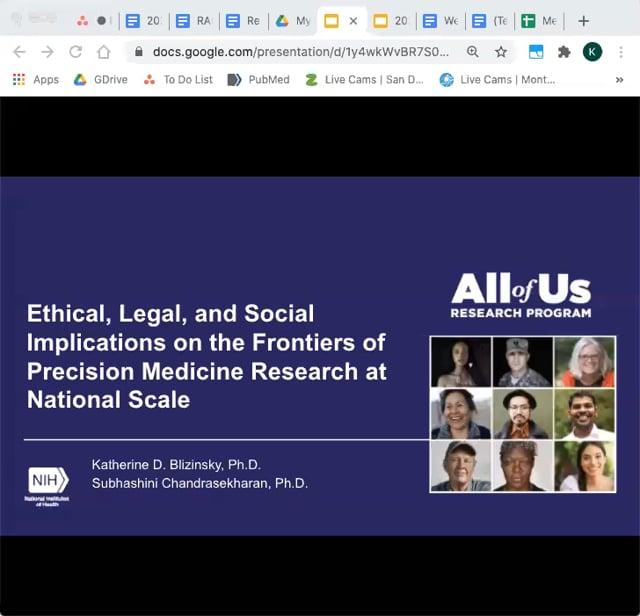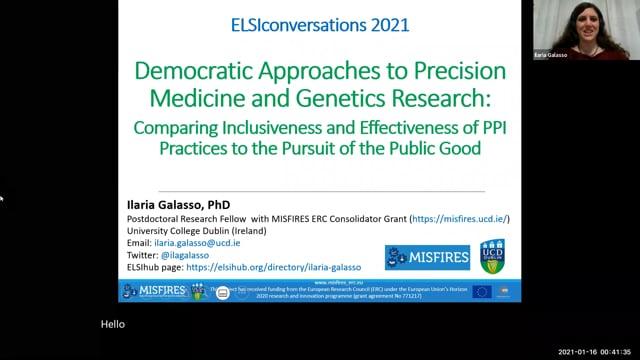What does ‘respect for persons’ really mean? Practical considerations for demonstrating respect in genomics research
Stephanie Kraft, JD - University of Washington
ELSIconversations - March 5, 2021
Demonstrating respect for research participants is not only an ethical imperative but, if done effectively, it may support trusting relationships between research teams and participants. Respect for persons may be especially important for how researchers engage with individuals from historically underrepresented groups, who often have lower trust in research due to prior and ongoing discrimination and exclusion. Yet there is little known about how to demonstrate respect in genomics research, which may result in missed opportunities to improve diversity among participants. In this presentation, we will examine how participants from diverse backgrounds define ‘respect’ and what role it plays in their enrollment decisions; we will also offer practical considerations for genomics researchers to more effectively demonstrate respect. We conducted individual interviews (n=40) with participants in a translational genomics study of hereditary cancer risk among ethnically, socioeconomically, and linguistically diverse primary care patients. Four approaches were identified for research teams to meaningfully demonstrate respect: (1) minimize barriers to participation to support inclusion of individuals from diverse backgrounds; (2) train research staff to provide support and empathy to prospective participants; (3) provide clear expectations about the study, including its social value; and (4) clarify and protect prospective participants’ autonomy rights. In this presentation, we will describe the contours of these broad considerations and identify specific interventions, informed by stakeholder feedback, that have potential to better convey respect to participants. Through this work, we aim to offer concrete guidance for genomics researchers to improve engagement with individuals from groups historically underrepresented in research.
Tags
Videos in Series
-
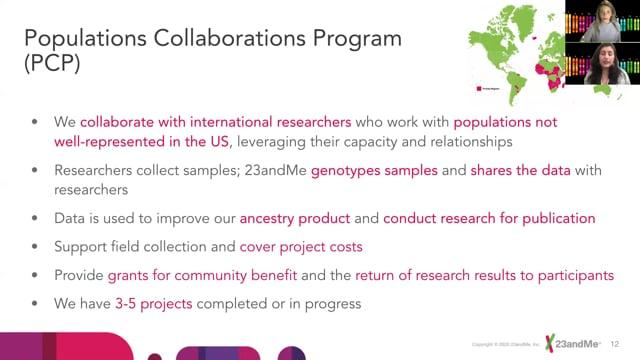
ELSIconversations 1: ELSIcon2020 - A Prospectus on Ethical Issues in the Context of Collaborations Between Academic and Non-academic Institutions on Genetics Research
-
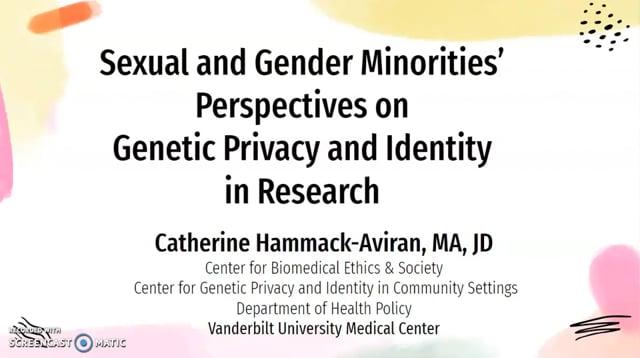
ELSIconversations 1: ELSIcon2020 - Sexual and Gender Minorities’ Perspectives on Genetic Privacy and Identity in Research
-

ELSIconversations 1: ELSIcon2020 - Platform Heals? Ethical Issues in Direct-to-consumer Telepharmacies
-
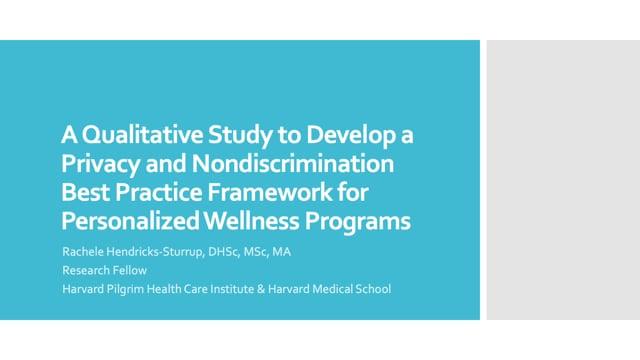
ELSIconversations 1: ELSIcon2020 - A Qualitative Study to Develop a Privacy and Nondiscrimination Best Practice Framework for Personalized Wellness Programs
-
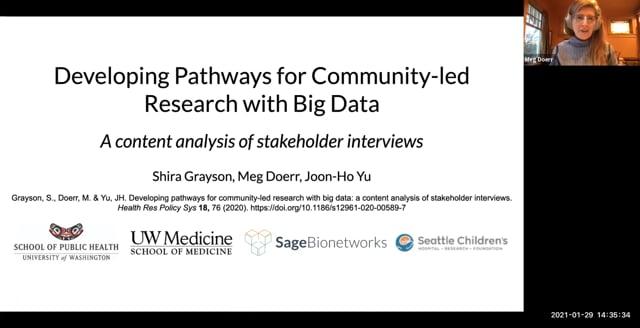
ELSIconversations 1: ELSIcon2020 - Developing Pathways for Community-led Research with Big Data: A Content Analysis of Stakeholder Interviews
-

ELSIconversations 1: ELSIcon2020 - Part 4. Assessing Access to Care in the Clinical Sequencing Evidence-Generating Research Consortium: Contexts and Challenges
-
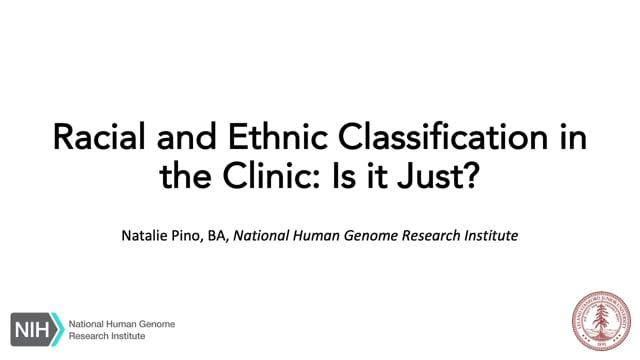
ELSIconversations 1: ELSIcon2020 - Racial and Ethnic Classification in the Clinic: Is it Just?
-

ELSIconversations 1: ELSIcon2020 - Part 3. Assessing Access to Care in the Clinical Sequencing Evidence-Generating Research Consortium: Contexts and Challenges
-

ELSIconversations 1: ELSIcon2020 - Defining the Critical Components of Informed Consent for Genetic Testing
-

ELSIconversations 1: ELSIcon2020 - Part 2. Assessing Access to Care in the Clinical Sequencing Evidence-Generating Research Consortium: Contexts and Challenges
-
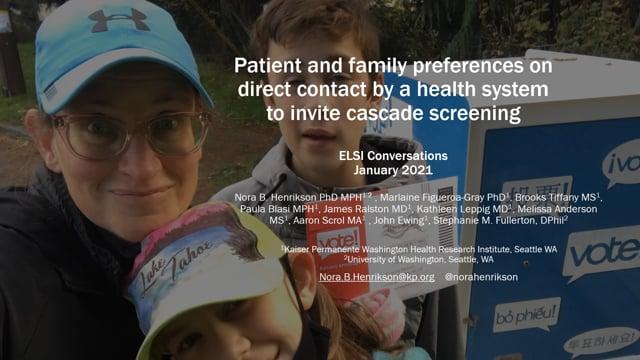
ELSIconversations 1: ELSIcon2020 - Patient and family preferences on direct contact by a health system to invite cascade screening
-

ELSIconversations 1: ELSIcon2020 - Part 1. Assessing Access to Care in the Clinical Sequencing Evidence-Generating Research Consortium: Contexts and Challenges
-

ELSIconversations 1: ELSIcon2020 - Which Public, What Comments? An Analysis of Public Comments on Human-Animal Chimera Research Submitted to the National Institutes of Health
-
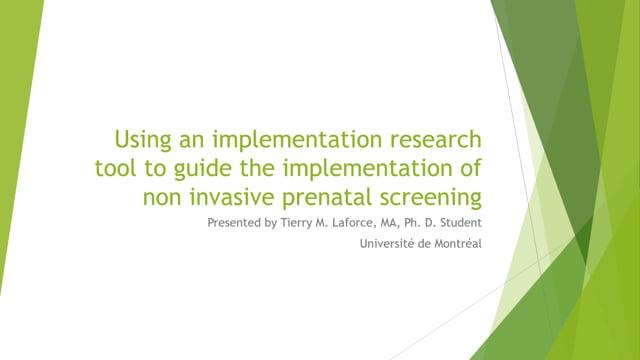
ELSIconversations 1: ELSIcon2020 - Using an implementation research tool to guide the implementation of non-invasive prenatal screening
-
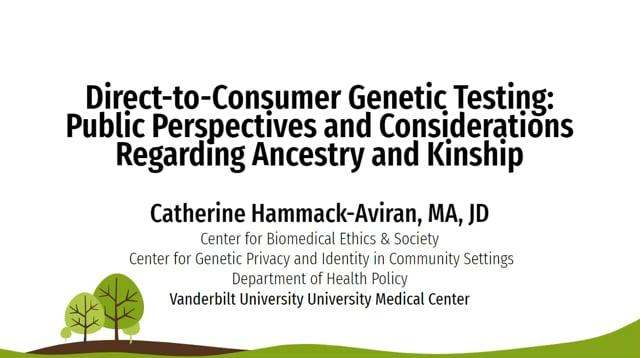
ELSIconversations 1: ELSIcon2020 - Direct-to-Consumer Genetic Testing: Public Perspectives and Considerations Regarding Ancestry and Kinship
-

ELSIconversations 1: ELSIcon2020 - Human Germline Genome Editing and the Identity Politics of Genetic Disability

